What makes zirconia dental implants a preferred choice for many? Beyond their biocompatibility and natural look, these implants offer impressive durability. This article explores the essentials of zirconia implants, from cost and procedure to post-operative care, helping you decide whether they align with your dental needs.
The biggest advantage of zirconia implants over titanium is zirconia is not a metal. Zirconia implants are often called “ceramic implants” and they are in fact the same thing. Holistic dentists prefer zirconia because the material does not contain metal properties. Ceramic is considered the holistic dental implant. Zirconia is white like natural teeth. Titanium is a metallic gray color and does not look good if seen in the mouth. Besides the obvious cosmetic advantages of ceramic implants, titanium implants corrode in the mouth. Titanium corrosion can increase the chances of immunological rejection and failure. The process of titanium corrosion is very slow and the role in implant failure is debatable.
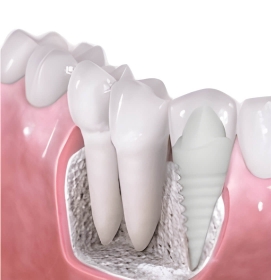
Zirconia Implants Vs Titanium Video
Contact Dr. Adams for a complimentary consultation including 3D Xray
How much is a Zirconia Implant?
Zirconia implants cost more than titanium implants for many reasons. The manufacturing process and the material costs of zirconia are more expensive than conventional titanium. Each zirconia implant needs to be milled by a 3D printer out of a block of specialized ceramic. Ceramic implant surgery is more difficult to perform and requires specialized and additional training. Parts such as abutments etc. cost more. It is also technically more challenging to design and make crowns. Finally, if that isn’t enough, most zirconia implant manufacturers do not warranty their products, so in the event of a failure, the doctor will need to buy another implant. Most dentists build all these factors into the fee. Most doctors charge a little over $2000 for titanium implants and a little over $3000 for zirconia implants. Of course the crown is an additional fee usually costing an additional $2,000 – $3000.
Key Takeaways
- Zirconia dental implants are made from zirconium dioxide which offers biocompatibility and an aesthetic white color that matches natural teeth, and they are increasingly preferred over traditional titanium implants for their hypoallergic and non-conductive properties.
- The procedure for zirconia implant placement involves a pre-surgery evaluation and a precise surgical insertion, followed by critical post-operative care that includes managing discomfort and ensuring proper oral hygiene to maintain implant integrity.
- Zirconia implants are known for their durability and longevity, with success rates between 95 to 98.4% over five years, though costs range from $1,500 to $6,000 per implant and may vary based on individual needs, the dentist’s expertise, and location.
Understanding Zirconia Dental Implants
Embarking on the journey of dental restoration can lead to a crossroads: choosing between zirconia and titanium implants. Zirconia implants, made from zirconium dioxide, not only boast a biocompatibility that aids in osseointegration but also present a white color that aligns with the natural aesthetic of teeth.
With key properties like low plaque affinity and excellent aesthetic qualities, zirconia implants stand out in the realm of implant dentistry as a robust and visually appealing option.
The Composition of Zirconia Implants
The solid ceramic material known as zirconia offers several advantages in implant dentistry, particularly for ceramic dental implants, also referred to as ceramic implants:
- High fracture resistance
- Compatibility with human tissues
- Tooth-like color
- Resistance to corrosion
These qualities make zirconia a standout choice for those seeking a blend of strength and aesthetics.
Innovations such as CAD/CAM technology allow for a perfectly tailored fit, enhancing both the functional and visual outcome of the dental implant surgery.
Comparing Zirconia to Traditional Titanium Implants
While traditional titanium implants have been the stalwart of dental restoration, zirconia implants are emerging as a promising alternative. They offer aesthetic benefits with their natural coloration, and studies suggest they may have better plaque resistance. Moreover, their non-conductive nature addresses concerns about electromagnetic fields, making zirconia implants a frontrunner for patients prioritizing both health and aesthetics. However, the higher cost and the need for precise placement are important considerations when comparing them to titanium dental implants.
The Benefits of Choosing Zirconia Over Metal Implants
The allure of zirconia dental implants lies in their unique advantages over metal implants. Not only do they offer the strength and durability required for a long-lasting dental solution, but they also cater to the increasing number of patients with metal allergies, offering a hypoallergenic alternative.
Furthermore, their resistance to bacterial colonization promotes better oral health outcomes, making zirconia implants a compelling choice for those seeking both functional and health benefits.
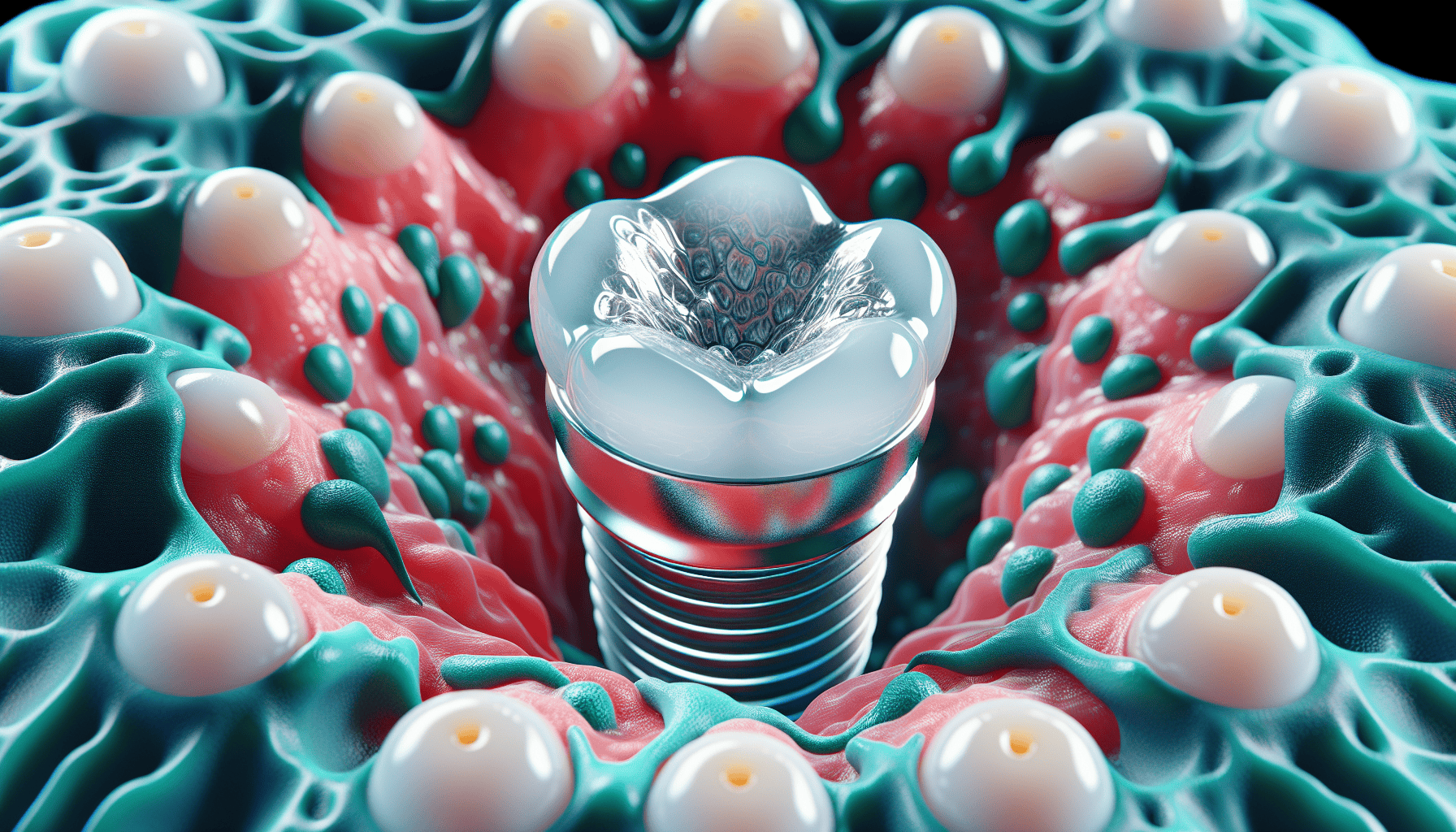
100b1795 5a96 405e 865b c3e918d9ef6f
Hypoallergenic Properties
For those with sensitivities, the hypoallergenic nature of zirconia implants is a breath of fresh air, offering a solution that minimizes the risk of allergic reactions. These implants cater especially to patients who are concerned about the presence of metal in their bodies and are looking for a biocompatible
and inflammation-free option.
While allergies to zirconia are rare, its general tolerance by most individuals makes it an attractive choice for a broad patient base.
Superior Aesthetics
The quest for a perfect smile is not just about functionality but also about achieving a natural look, and zirconia implants excel in this regard. Their white coloration ensures that the implants blend in with natural teeth, avoiding the telltale dark metal lines associated with titanium implants.
The use of Y-stabilized tetragonal zirconia polycrystalline implants furthers this cause, promoting an aesthetic that remains consistent over time without the risk of releasing metal ions.
The Procedure: How Zirconia Implants Are Placed
When considering zirconia dental implant surgery, it’s essential to understand the stages involved in the procedure. This meticulous process begins with selecting an experienced dental professional for optimal outcomes and includes a comprehensive pre-surgery evaluation to tailor the treatment plan.
The surgical placement itself is a carefully orchestrated sequence that ensures the precise and minimally invasive insertion of the implant into the jawbone, followed by a critical healing period for osseointegration.
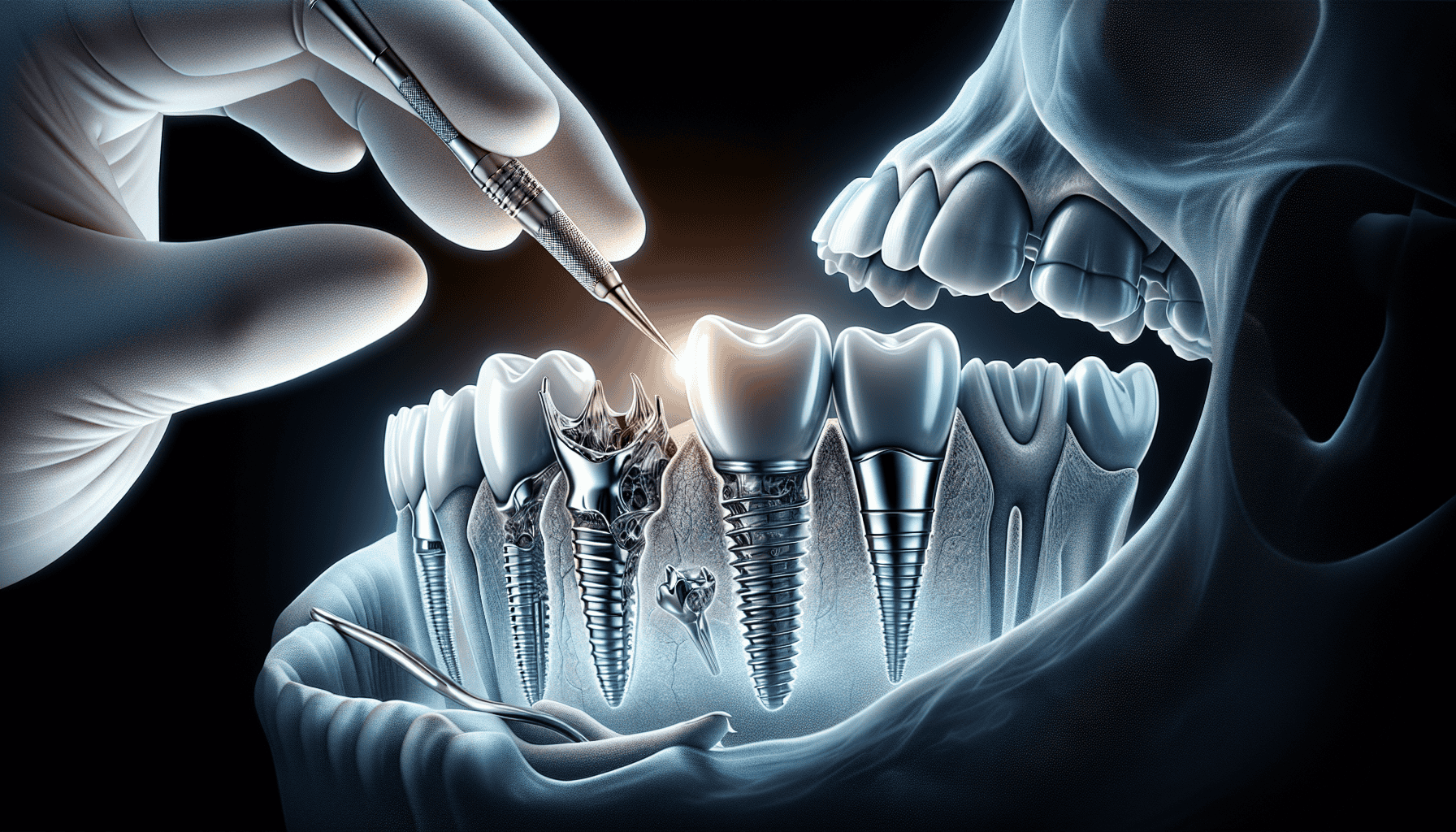
43837115 8d8e 49b1 b269 b348cab18047
Pre-Surgery Evaluation
The pre-surgery phase is a critical step to ensure the success of zirconia dental implant surgery. This involves a thorough oral health examination, including X-rays and dental impressions, to evaluate bone density and determine the most suitable implant site.
The personalized dental implant treatment plan developed during this phase takes into account the specific conditions of the patient’s oral cavity, enabling a tailored approach that enhances the prospects of a successful clin oral implants placement.
Surgical Placement of Zirconia Implants
The surgical placement of zirconia implants involves the following steps:
- Careful preparation of the implant site
- Strategic insertion of the implant with specialized tools to ensure stability
- Employing a torque wrench during the insertion to secure the implant at the optimal torque, which is critical for achieving primary stability.
This procedure showcases the precision of modern dentistry.
Post-Operative Care for Zirconia Implants
After the precision of implant surgery comes the critical period of post-operative care. This encompasses everything from managing discomfort to protecting the implant site from undue stress. Patients are advised to adhere to a soft diet, avoid using straws, and engage in gentle oral hygiene practices.
Ensuring the health and longevity of the zirconia implants also means regular follow-up appointments to monitor stability and tissue health.

23d6c923 6389 4231 a012 6fce25bb8e33
Daily Oral Hygiene Practices
Maintaining the integrity of zirconia implants post-surgery is pivotal, and it starts with daily oral hygiene practices. The use of soft-bristled toothbrushes and non-abrasive toothpaste is recommended to prevent any damage to the delicate implant surface.
Once fully healed, patients can resume their regular oral hygiene routine, which includes brushing twice daily with an electric toothbrush to maintain optimal oral health.
Regular Dental Check-Ups
The journey with your zirconia implants doesn’t end at surgery; it continues with regular dental check-ups. These visits are crucial not just for the long-term success of the implants but also for maintaining the health of the surrounding gum and bone tissues. Consistent check-ups and professional cleanings are integral parts of the care regimen, ensuring that the implants continue to function as intended.
Longevity and Durability: What to Expect from Your Zirconia Implants
One of the most compelling attributes of zirconia dental implants is their exceptional longevity and durability. Thanks to their osseointegration capabilities and sturdy ceramic material, zirconia implants are designed to withstand the test of time, potentially lasting a lifetime.
The lifespan of these implants is affected by various personal and clinical factors, from bone quality to lifestyle choices, all contributing to the implant’s steadfast performance.
Factors Influencing Implant Lifespan
The longevity of zirconia implants hinges on several pivotal factors, including:
- The quality of the bone
- The patient’s commitment to a healthy lifestyle
- Advances in bioengineering, including the design and surface finish of the implant
These factors directly influence the implant’s success and stability over the years.
Success Rates and Potential Complications
Zirconia implants enjoy high success rates, with studies showing survival rates between 95 to 98.4% over a five-year period. They are known for effective integration into the jawbone, comparable to titanium implants.
However, as with any medical procedure, there is a risk of complications, often occurring within the first year post-placement.
Is a Zirconia Implant Right for You?
Determining if a zirconia dental implant is the right choice for you involves a blend of personal, health, and financial considerations. These implants can serve as a restorative treatment for a variety of dental issues, including single, multiple, or completely missing teeth. By assessing factors such as cost, treatment suitability, and maintenance, you can make an informed decision that aligns with your individual needs.
Evaluating Your Dental Health
A candid evaluation of your dental health is the first step in considering zirconia implants. Adequate bone volume and density are essential for implant support, and systemic or local contraindications may affect eligibility.
A detailed treatment plan, accounting for your unique oral health and aesthetic desires, will determine if zirconia implants are a viable option for you.
Understanding the Costs Involved
While the benefits of zirconia implants are numerous, it’s important to understand the financial investment they entail. Costs can range from $1,500 to $6,000 per implant, influenced by variables such as the dentist’s expertise and the geographic location of the practice.
While pricier than their titanium implant counterparts, zirconia implants can offer significant savings compared to other treatments in the long run.
Zirconia Implants and Full Arch Restorations
For those needing more extensive restoration, full arch zirconia implant bridges provide a comprehensive solution. These fixed prostheses replace an entire arch of teeth, anchored to the jaw with dental implants for unparalleled stability and comfort.
The absence of a plastic palate and artificial gums ensures a more natural and comfortable experience, setting zirconia bridges apart from traditional dentures.
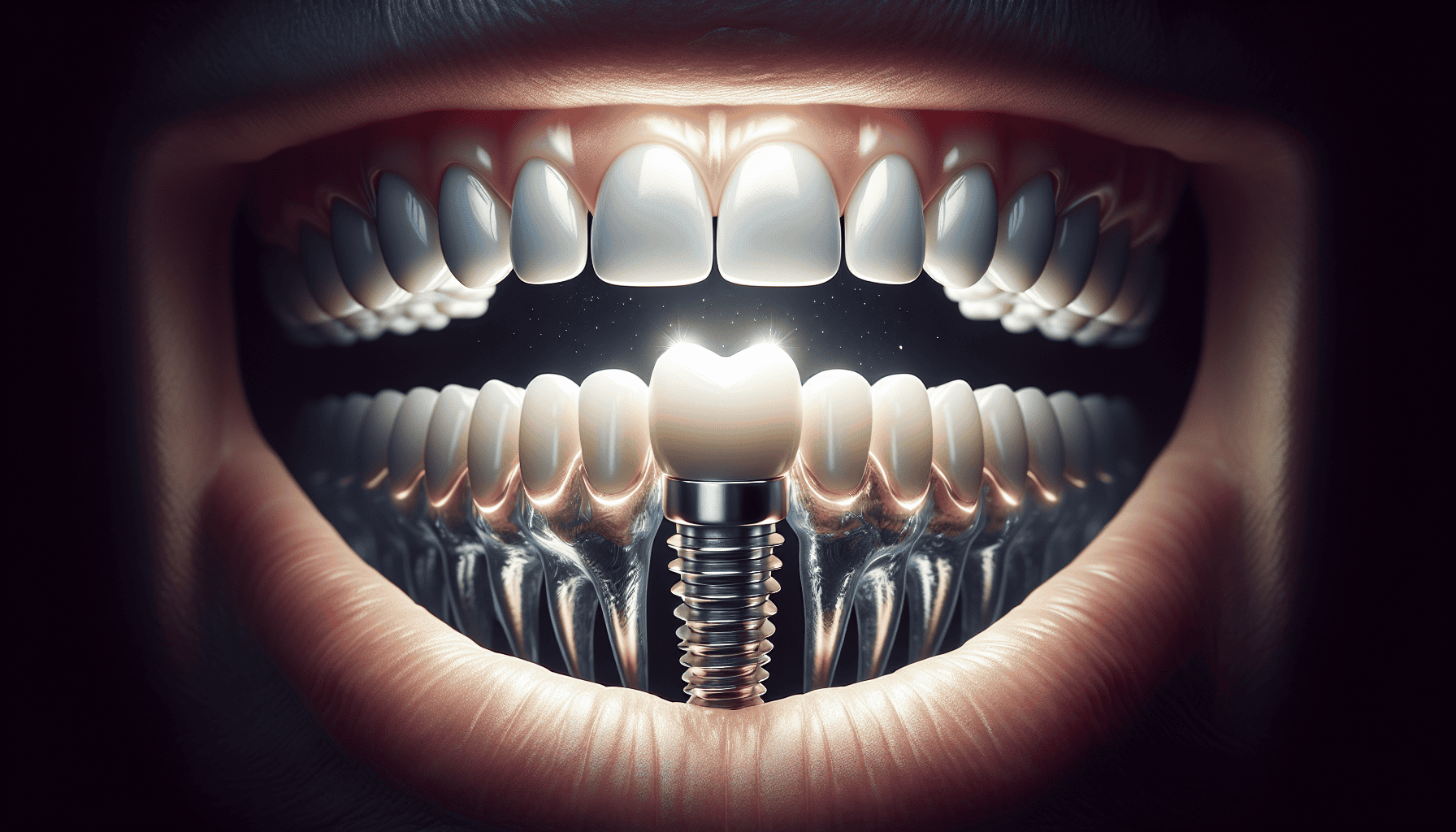
dffbde42 b86c 44cd 9ef0 54bcea865367
Advantages of Full Arch Zirconia Bridges
Full arch zirconia bridges offer:
- A stable foundation for a new set of teeth
- Meticulously crafted design to emulate the natural contours and appearance of real teeth
- Customization process, including digital planning, for a precise and aesthetically pleasing outcome
- Enhanced function and confidence
Tailoring Zirconia Implants to Individual Needs
The beauty of two piece zirconia implants is their ability to be customized to each patient’s specific needs. From bone quality to oral health status and aesthetic preferences, every aspect is taken into consideration to create an implant that looks, feels, and functions like a natural tooth. The result is a personalized restoration that perfectly complements the individual’s smile.
Personalized Treatment Planning
Personalized treatment planning for zirconia dental implants is a fusion of art and science. Utilizing digital scanning and CAD/CAM technologies, dentists can create precise 3D models for exact implant customizations. Such detailed planning may include anatomical modifications to the implant’s design, ensuring an aesthetic result that mirrors the natural beauty of real teeth.
Summary
As we conclude our exploration of zirconia dental implants, we reaffirm their status as a top-tier choice for restoring smiles with durability, aesthetics, and biocompatibility. This comprehensive guide has illuminated the many facets of zirconia implants, from their hypoallergenic properties to the precision of their placement and the importance of tailored treatment plans. With this knowledge, you are well-equipped to make an informed decision on whether zirconia implants are the right choice for your dental restoration journey.
Frequently Asked Questions
Zirconia implants have high success rates, comparable to that of titanium implants, with survival rates ranging from 95 to 98.4% over a five-year period.
Yes, zirconia implants are a suitable option for patients with metal allergies, as they are hypoallergenic and biocompatible.
Can zirconia implants be used for full arch restorations?
The longevity of zirconia implants is influenced by factors such as bone quality, oral health, lifestyle choices, and the implant’s design and surface finish. These factors play a crucial role in determining the lifespan of the implants.
Zirconia implants are customized for individual patients through digital scanning and CAD/CAM technologies, ensuring accurate customizations and natural-looking results.
Zirconia and Traditional Titanium Implants
What material is best for implants – zirconia or titanium implants? Zirconia is better for cosmetics (no gray metal) and people who have allergies and biocompatibility issues. Titanium is better for full mouth implant cases and people who clench their teeth a lot. Needless to say there are many advantages of zirconia dental implants. But there are also many advantages to titanium implants even beyond the obvious cost advantages. Strength, durability and titanium bends and does not break usually – just like natural teeth. Zirconia is strong, but does not bend and at a certain point it will break. Clearly ceramic is white like natural teeth and will definitely never corrode.
Titanium and Zirconia both have pros and cons
As you can see, the two materials are just different. It really just depends on the circumstances. Suffice to say, that zirconia is a better cosmetic implant. Titanium implants should not be used for people with nickel and other metal allergies. Titanium is better for people that clench their teeth a lot and replacing molars.
Do Titanium Implants Corrode and Fail?
Metal implants made of titanium corrode slowly over time in the mouth in a rusting-like process. After all humans are practically all water and what happens when you mix metal and water? Titanium corrosion can lead to implant inflammation called peri-implantitis. The cause of the inflammation is the titanium corroding and rust-like particles leaking out into jawbone. Corrosion can lead to implant rejection? Practically speaking, titanium corrosion is a very slow process. Implant failure do to corrosion is very rare and may be a minor concern for most people. Exceptions may be people with known metal allergies to nickel and people who have lots of other sensitivities.
Zirconia Implants are Not New or Experimental
Zirconia implants are new and experimental. That is absolutely false. Zirconia implants have been used since the 1980s. That makes ceramic implants as new as Atari and Pacman. Dental schools in the US offer no training for zirconia implants, but rather only titanium. Since most dentists are not trained to do zirconia implants they offer only titanium.
Maryland Holistic Offers Zirconia and Titanium Implants
Are you searching for zirconia implants near me or a ceramic implant dentist? We are a holistic dental office that does lots of metal free ceramic implants. But we also place titanium when it is a better option. Isn’t one better than the other? No. Titanium and zirconia implants are two completely different materials and products with different advantages and disadvantages. The real question is what are the different indications for ceramic and titanium implant tooth replacement.
Why Titanium Implants are more Popular than Zirconia
Zirconia Implant Before and After
Over the years, not all ceramic implant reviews have been good. Dr. Adams is very excited about some of the new zirconia implant products. He believes some of the new advancements in 2021 have made zirconia and ceramic just as good as their titanium counterparts in certain situations. Dr Adams believes the needs of each case should be evaluated and the best implant material used for tooth replacement. Certain cases will favor one material over the other and the pros and cons of both materials needs to be weighed with each and every case. Are Zirconia Implants are more Biocompatible than Titanium
In cases where there are allergies and sensitivities, zirconia implants are the better choice because they are more biocompatible.
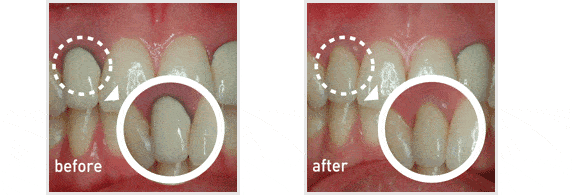
zirconia vs titanium implants cosmetic
Titanium Implants are better for Teeth Clenchers
In cases where teeth are small and there are a lot of TMJ clenching forces, titanium may be a better choice. Ceramic implant design vs titanium. Considerations other than material differences exist too. Implants come in different shapes and sizes and these differences need to be considered as well as the material itself. Dr Adams is one of the best dentists in determining what type of implant is best in a given situation. All dental implant options are on the table as we have both titanium and ceramic choices.
Ceramic Implants are white and more cosmetic
Metal free cosmetic options is not a new concept in the dental office. Removing amalgam fillings to get rid of old and unsightly metal fillings has been done for years. Non-metal implants have a unique advantage over titanium implants in cases where: 1) showing metal may be a problem 2) patient metal allergies may be an issue 3) the patient has other metals present in there mouth such as silver fillings and metal crowns. Zirconia implants are sometimes called ceramic implants or cosmetic dental implants.
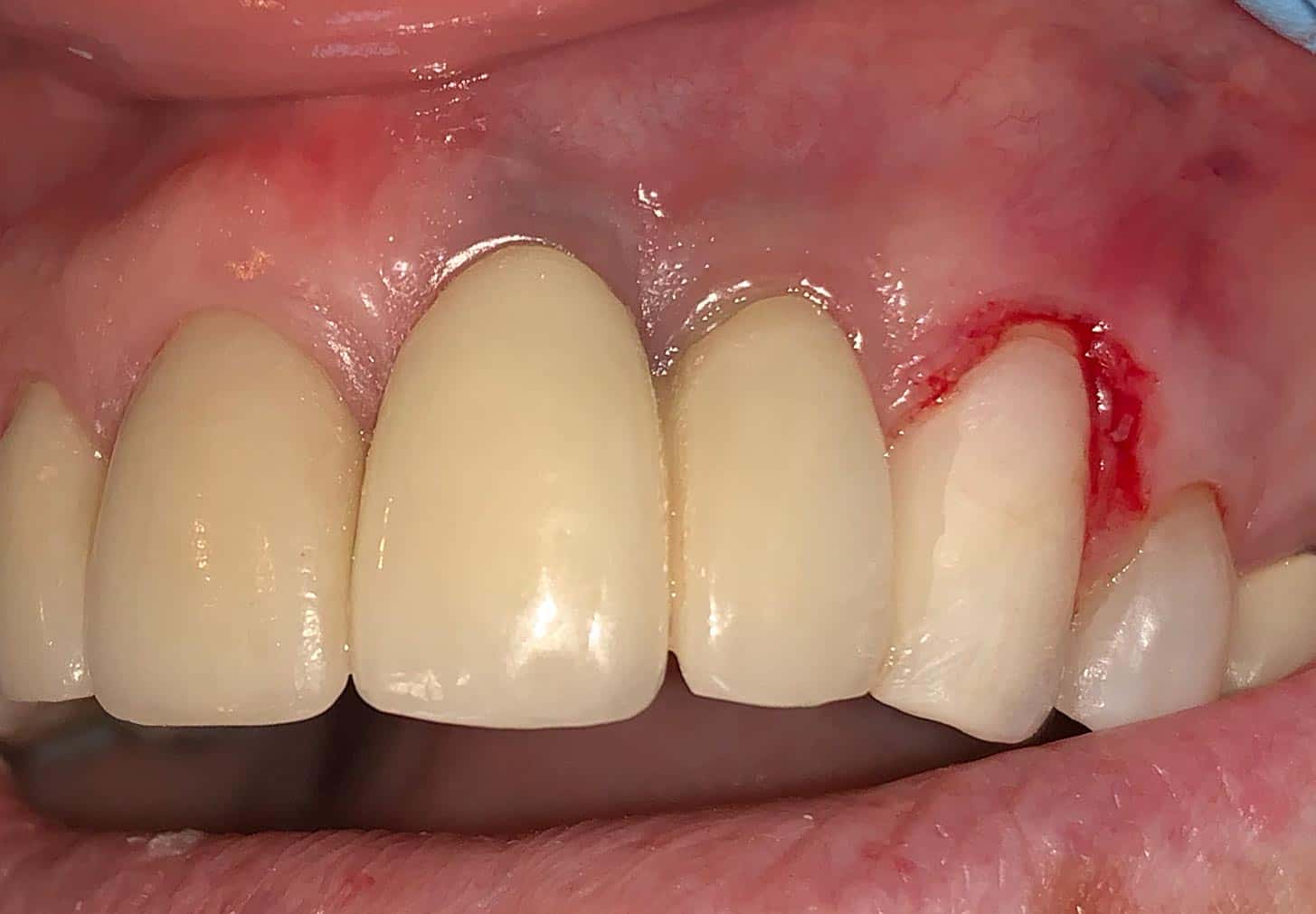
titaniumj implant gum11
Ceramic and Zirconia Implants are the Same Thing
There is no difference. They are interchangeable and analogous when it comes to implants. Zirconia is a specific ceramic. All ceramic implants are made of zirconia, so for implants they are synonymous. Ceramic is a more familiar word for most people, so it has been used more in the past. Now that zirconia is developing a more household name, it is becoming more used than ceramic.
Dr Adams sees patients from Maryland, DC, Virginia, across the USA and abroad. Dr. Adams has successfully placed thousands of implants. Zeramex is the leading manufacturer of zirconia implants in the world and is based out of Switzerland. Dr. Adams does cases involving one up to a full mouth of implants. Dr. Adams performs implant surgery and the teeth that go on top.
“enjoy doing my patient’s implant cases from start to finish…it brings me a great sense of accomplishment and satisfaction…”
Zirconia Implants are Biocompatible
Dr. Adams preselects materials that are metal free, safe and biocompatible. “Every material placed into the mouth has an impact on our system,” says Dr. Adams…”We should select the one with the smallest and safest impact possible.”
Why are Zirconia implants better than titanium?
Zirconia implants are tooth colored as opposed to a metal color of all conventional titanium implants. Metal free zirconia implants pose many advantages over titanium. First, since zirconia implants are white you will never see any metal color by the gum-line when you smile. Since zirconia does not conduct electricity or react electronically, it will never react with other metals in your mouth. Metal things in your mouth all have an electronic charge. things such as silver amalgam fillings, metal crowns, braces, titanium implants, partial dentures. The issue with different metals is they react with one another in a reaction called a Galvanic reaction. During these reactions, there is corrosion, flow of electricity and magnetism. All these reactions are not good for the immune system or nervous system.
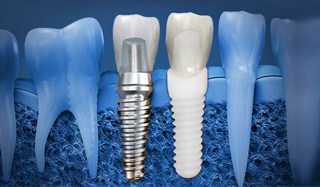
zirconia ceramic tooth implant
Why is Titanium better than Zirconia Implants?
What is the best dental implant? First, Titanium implants cost less than ceramic and are easier for the dentist to use. Titanium are less likely to fracture than zirconia implants. That being said, I have never seen a zirconia implant fracture. in fact, I have been using zirconia on the biting surfaces of teeth as a crown material for over 10 years. I have only seen a couple zirconia crowns break. However that being written, zirconia is more likely to fracture than titanium implants. Titanium implants have much better parts to use to put teeth on top of implants. Titanium is much easier to use when it comes to multi-teeth implant cases such as all on 4 implants and implant dentures.
As stated above, titanium implants are easier to use for the implant dentist. Zirconia implant dentists need additional training and need to be more experienced to place zirconia implants vs titanium implants. Just because something costs less and is easier to do, does not mean it is the best solution.
Ceramic Implant Cost? How much is a Zirconia Implant?
Ceramic implants are more expensive than titanium when it comes to tooth replacement. To replace a tooth with a zirconia implant vs titanium, the zirconia implant is 30% more expensive.
There are several zirconia implant manufacturers with FDA approval: Ceraroot, Z Systems, Zeramex, Nobel Biocare and Straumann. Nobel Biocare is the most recent newcomer to the market with the Nobel Pearl zirconia implant.
Is Zirconia a Metal?
No. A metal is a material that conducts electricity. In fact zirconia, if anything is an insulator or a material that has everything but metallic properties. Think of wires with a plastic coating. The wire is always a metal or a material that conducts electricity well and the plastic coating is an “insulator” that keeps electronic current inside the wire and does not allow the electricity to escape. Zirconia being an excellent insulator, is quite the exact opposite of a metal. The non-conductivity of zirconia is exactly what helps it perform well in biologic systems because it does not corrode or react with a water based biologic system. After all, we are nearly 100% water anyway and we all know metal rusts or corrodes. It also helps that zirconia is white and looks better too. Zirconia dental implants are an invaluable asset to the zirconia implant dentist and natural holistic dentistry in general.
Benefits and of Zirconia Tooth Implants:
What is all the hype with metal free ceramic implants? The cosmetic advantages of ceramic implants are obvious. It is a lot easier for a ceramic implant dentist to make a case look natural if the material used is the same color as a natural tooth. Nothing causes a dentist more anxiety than trying to hide unsightly metal in the cosmetic teeth zone.
What Implant Material is the most Biocompatible?
Zirconia is more biocompatible, but why? It comes down to how ones body reacts to different materials. The body always has a reaction to everything be it good or bad. For example, foods. Some people are allergic to peanuts and some are not. Peanuts can be so reactive that eating peanuts can be grave for some people. For other people peanuts pose no problem and in fact have some health benefits. Clearly peanuts have the potential to be more reactive than celery. Likewise with dental materials, some materials are more reactive than others. It just so happens that titanium dental implants are more reactive biologically than zirconia. Naturally, zirconia implants have immunological advantages over titanium.
Hypoallergenic:
Ceramic dental implants are hypoallergenic. Some cases of titanium sensitivity show up years after surgery when itchiness and inflammation develop around implant sites. It’s a perfect setup for bone loss and the potential failure of an implant.
Today, there’s a growing number of people with allergies, sensitivities and immune system problems; therefore implantation of tooth root devices should be seriously considered. Especially since long term exposure to sensitive materials can lead to chronic systemic inflammation and autoimmune diseases such as Hashimoto’s, Lupus, Periodontal disease among many others. The removal of implants from jaw bone is not a simple procedure either. No question, the demand for zirconia implant dentists will be on the rise.
Zirconia Implants will never show Metal buy the gum line:
People with thin gums and who are susceptible to gum recession may end up with gray metallic-looking gums or titanium showing around the margin of the crown. Since zirconia is non-metallic and white, it is much more natural looking. Zirconia has been referred to as the natural dental implant. It’s a perfect base color that closely mimics what nature created in the first place. Tooth-colored materials makes cosmetic implant dentistry a lot easier.
Corrosion Resistant:
Ceramic does not corrode and it will not conduct electricity or heat. As a bio inert material, it will never break-down and migrate to other sites in the body or interfere with the maintenance of optimal health.
Non-Metallic:
Zirconia does not conduct electricity – a huge benefit for the non-metal implant dentist. Bacterial growth on the surface of ceramic implants is far less likely than titanium due to it’s non-conductivity. Metal conductivity and corrosion promotes bacterial growth and increases the chances of peri-implantitis around titanium vs zirconia. Research shows healthier gums around zirconia dental implants relative to metal including titanium and other metal restorative materials. Zirconia implants are the perfect choice for tooth replacement for people with cosmetic concerns and material sensitivity issues.
Holistic Dental Implants:
Ceramic does not interfere with the movement of energy though the body’s meridians. Because zirconia is electronically neutral, it has a smaller impact on the meridians than metallic materials. it is an ideal material for tooth replacement for people who want holistic and biological implant treatments.
What is the Verdict – Titanium or Zirconia?
Issues of ceramic vs titanium implants needs to be further explored as do issues of root canals vs zirconia implants. While the corrosive properties of titanium implants has been established, we will need to see how this impacts long-term titanium implant success and if it is a true cause or risk factor in titanium implant failure.
There has been a big evolution of zirconia implants. We Currently use Zeramex zirconia implants due to their high rate of success, ease of use, biocompatibility and it is white and non-metallic properties.
Zirconia implants can be used in implant bridges, single implant cases and select full mouth implant cases. Ceramic implants are not ideal for all on four dental implants cases.
Is there a such thing as a Zirconia Implant Specialist?
Zirconia Implants are definitely placed differently than titanium implants. The crowns are also fitted differently than titanium. The bite needs to be adjusted differently than titanium too. It is advisable to seek a dentist who has experience in placing ceramic Implants and not just any implant dentist.
Is Zirconia Implant Surgery Different than Titanium Surgery?
There is definitely a difference between the training for ceramic and titanium implant dentistry. Zirconia implant dentistry is more specialized and most zirconia implant dentists have placed hundreds if not thousands of titanium implants before doing ceramic. In fact, until zirconia protocols become easier, dentists should get acclimated to titanium prior to doing more difficult zirconia implant dentistry cases.
Schedule Consultation


 (301) 421 1996
(301) 421 1996 burtonsvillesmiles@gmail.com
burtonsvillesmiles@gmail.com
